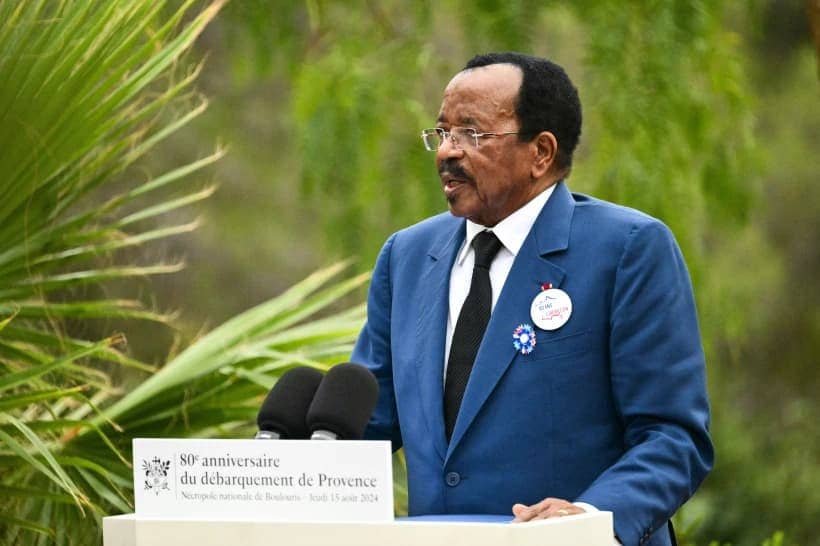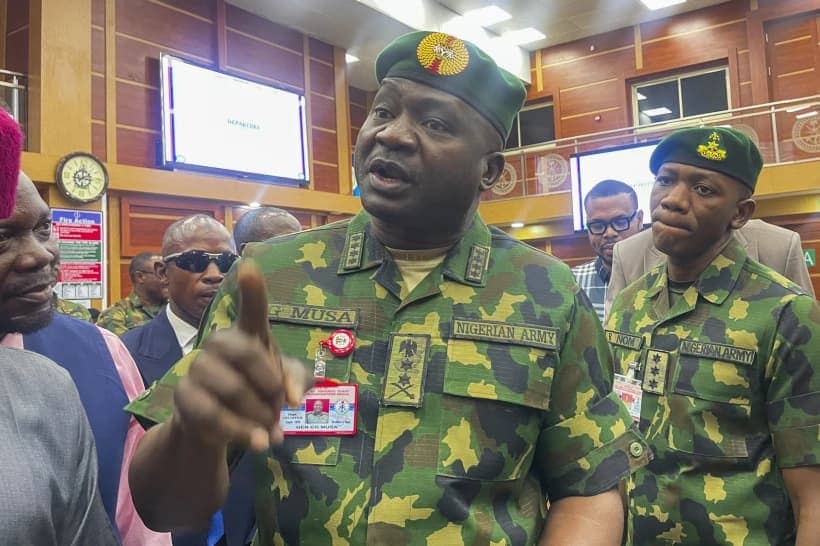YAOUNDÉ, Cameroon – A group of parliamentarians in the Democratic Republic of the Congo have condemned attacks on Catholic churches in the country as “acts of barbarism.”
The deputies – who form the Catholic Caucus in the DRC National Assembly – were speaking August 18 during a visit to the Archbishop of Kinshasa, Cardinal Fridolin Ambongo.
Acts of violence against the Catholic Church have taken place across the country in recent weeks after the Catholic Bishops’ conference, along with the Church of Christ of the DR Congo, refused to accept a candidate accepted by six other religious denominations to head the country’s National Independent Electoral Commission. The law allows eight religious denominations to propose a candidate.
On August 1, unidentified youths attacked the offices of the Archdiocese of Kinshasa as well as Ambongo’s residence, and destroyed several church buildings.
In Kasai, eleven Catholic churches suffered “deliberate acts of profanation, ignoble and particularly revolting acts,” according to Bishop Bernard-Emmanuel Kasanda of Mbujimayi.
“These places of worship suffered progressive and systematic sacrilege, with the perpetrators making away with tabernacles, Marian grottoes, sacred vessels, altar clothing, and the status of the Sacred Heart of Jesus and the Virgin Mary,” the prelated added.
The members of the Catholic Caucus said they were saddened that the Church should come under attack for playing its “prophetic role” in the country.
“We, national deputies, members of the Caucus of Catholic Parliamentarians have followed with indignation the acts of barbarism that have occurred in the diocese of Mbuji-Mayi where objects and places of worship have been desecrated in churches,” they said.
They also condemned the attacks in the capital Kinshasa, “where manipulated uncivil youths virulently attacked the residence of His Eminence Fridolin Cardinal Ambongo.”
The parliamentarians had already condemned the attack on the residence of the Cardinal just one day after it occurred, saying in a statement signed by Paul Balenza Di Balenza that it was important that “all the perpetrators of these acts” be arrested and brought to account.
The clerics have expressed worry that the attacks could actually be provoked by the rhetoric of some politicians who have gone on record to condemn some church leaders for their role in the country.
Catholics make up nearly half of Congo’s 80 million people, and the nation’s bishops are held in high esteem. In many ways, it is the only truly national institution in the ethnically and politically divided country.
During a press conference on August 2, the Secretary General of Congo’s Episcopal Conference, Msgr. Donatien Nshole, said the attacks came just days after a video circulating on social media showed the Secretary General of the ruling UDPS party, Augustin Kabuya, accusing Ambongo of “politicizing the Church.”
The cleric said the attacks on the Church constitute an attack “on freedom of religion and expression, but also a violation of democracy.”
“It is a big step backward on the road to the rule of law to which the Congolese people aspire,” Nshole said.
Kabuya has tried to walk back his comments, accusing “black sheep” in his own party for attacking the cardinal’s residence and Church properties.
“Many members of the UDPS are from the Catholic Church, but there is a problem, there are black sheep who think they can tarnish the image of the UDPS and the head of state. We are non-violent. If you learn that there is someone who wants to take advantage of the current political situation to attack the buildings of the Catholic Church, he must be stopped. We are non-violent, when we oppose the position of Catholic leaders, starting with the cardinal, we did not send someone to attack the buildings of the Catholic Church,” Kabuya told a group of party activists.
The Catholic Caucus used their August 18 visit to Ambongo to reiterate the role the Catholic Church plays in the country’s development effort.
“Since ancient times, the Princes of the Church have always contributed to the emergence of the nation,” they said.
“No one can ignore the role played by Cardinal Malula in the emancipation of the Congolese elite in the struggle for independence or his commitment against the dictatorial events and tendencies that our country has experienced since 1960,” they said in their statement.
Cardinal Joseph-Albert Malula served as Archbishop of Kinshasa from 1964 until his death in 1989.
The parliamentarians called on Catholics across the country to continue living their faith, protect Church property, and give the due respect to the ministers of the Church.
At the end of the meeting, the lawmakers said in unison: “Stop the violence, the unhealthy and archaic practices, and the desecration of the sacred objects of the Holy Church.”














